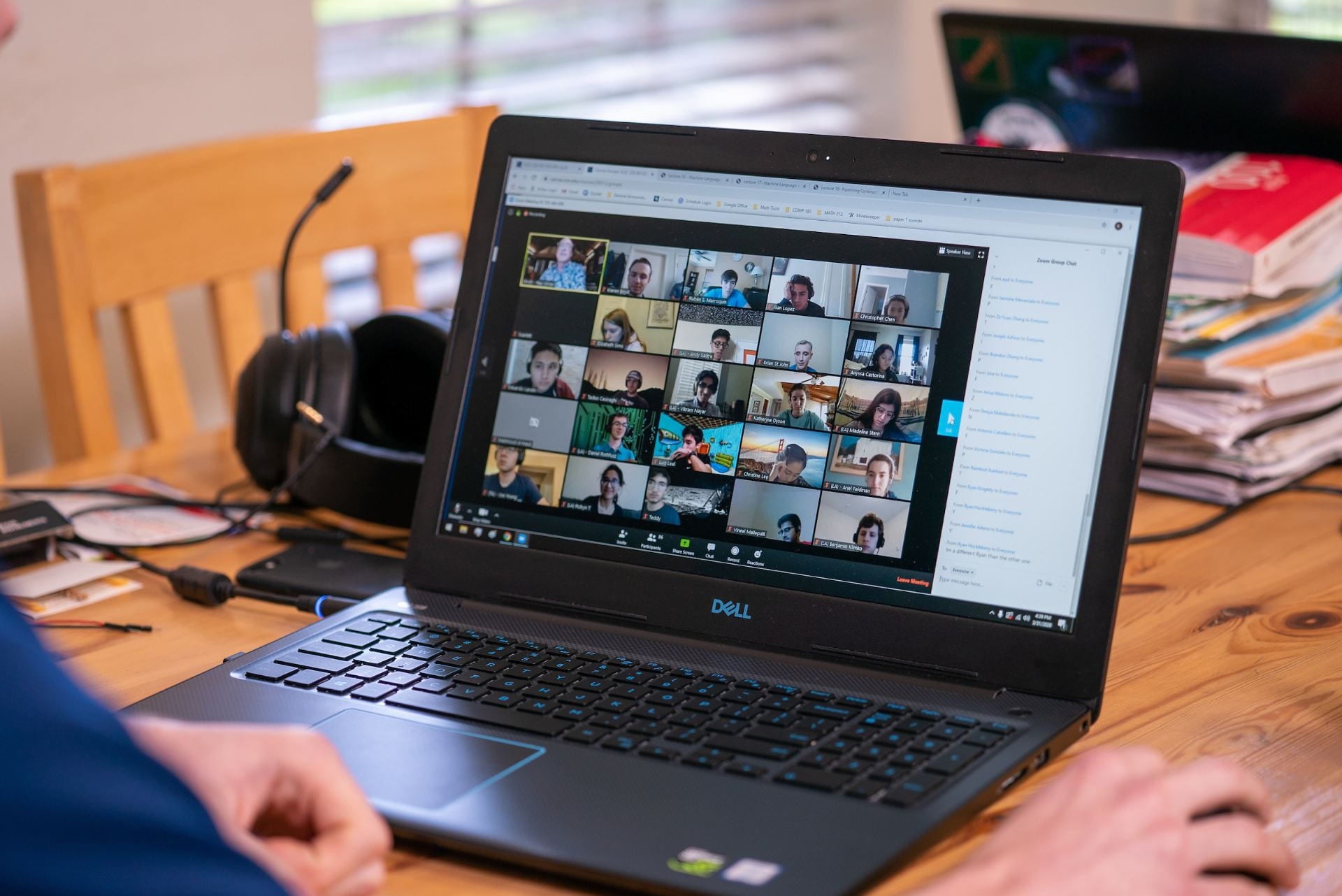Based on his experience transitioning to dual-delivery classes when the COVID-19 pandemic hit in the spring, Tom Phalen — a Professor in the Practice in the Rice Center for Engineering Leadership (RCEL) — knew the juggling act that hybrid courses demand: delivering quality material in class while also managing the technical aspects of online learning tools like Canvas and Zoom.
“So when the offer came to have a technology TA manage the technology, I jumped at the opportunity,” Phalen said.
Phalen is one of many Rice faculty taking advantage of a new program through the Office of Information Technology (OIT). Prompted by the challenges of teaching in the time of the coronavirus, OIT is now providing trained technology teaching assistants (TAs) for over 270 courses this semester.
“I would say necessity is the mother of invention,” said Klara Jelinkova, vice president for international operations and IT, whose office joined other peer institutions such as Yale University and Pennsylvania State University in establishing technology TA programs.
Now, instead of worrying about his webcam, managing breakout teams on Zoom or remembering to post his recordings to Canvas for reference, Phalen can focus on the big picture: creating young leaders in his Development of High Performing Engineering Teams course.
“All of our classes are discussion-based,” Phalen said. “The result of having the TA manage the technology and taking responsibility is that the delivery and discussions are much more natural.”
More than 500 Rice students applied for the technology TA positions when the program was announced over the summer; 160 were hired.
“I think it’s the hottest job on campus,” said Diane Butler, OIT associate vice president. Students are eager to “do something” and to help out wherever possible, she said, making the new position an ideal role.
Technology TAs work no more than 20 hours a week and are paid $12 an hour; they were paid for their training, too. And unlike most campus jobs, technology TA positions are open to fully remote students, keeping them actively involved even if they aren’t physically present.
“Although I have been studying remotely for this semester, I still want to get connected with Rice and to know how school is operated under the pandemic,” said Baker College junior Katrina Ji. She’s a technology TA for an upper-level mechanical engineering course, Aerospace Propulsion, taught by professor in the practice Patrick Rodi.
The work isn’t hard, Ji said, “but it definitely requires persistence and patience.” An electrical engineering major, Ji said she’s also enjoyed the opportunity to attend a class that’s outside her own studies.
This has been a bonus for Jones College junior Ozioma Ozor-Ilo as well. A mechanical engineering major, Ozor-Ilo never imagined she’d take any sport management classes. Now, she’s a TA for two of associate professor Jimmy Disch’s sport management courses, and she’s listening in as Disch’s guest speakers dish on the world of professional sports.
And as a busy Rice student — this semester alone, Ozor-Ilo is active in the National Society of Black Engineers, the American Society of Mechanical Engineers, the Doerr Institute for New Leaders, the Rice African Student Association and the Black Student Association in addition to classes in her major — she appreciates that the technology TA work is meaningful without taking up her entire week.
Moreover, Ozor-Ilo said, she enjoys the sense of camaraderie the position fosters between students and professors.
“It’s very much a partnership,” she said of the relationship she’s formed with Disch.
That’s been Phalen’s experience as well. He said working with his technology TAs has been “stellar” due in large part to the program’s emphasis on giving students both responsibility and freedom in their duties.
“They have taken responsibility for the class and acted as a partner in making the class as effective as it can be,” he said of his TAs. “Both have taken extra steps and done research to make the technology do a better job of delivering the results we both want.”
And as an added bonus, Phalen said, he believes his RCEL students won’t be the only people picking up valuable leadership skills this semester; this is a learning experience for the technology TAs, too.
“They are learning to take responsibility for delivering a quality product and are taking a leadership role in making it happen,” he said.
Jelinkova agreed. The feedback from professors using OIT’s program, she said, has already been great, and she’s excited about the opportunities these partnerships provide to Rice students.
“The interesting thing about this is that it gives students a more direct voice in their learning experience and their educational experience,” she said. “I mean, you’re really talking about students working directly with faculty on what the educational experience should look like. And I just think that’s really empowering.”

